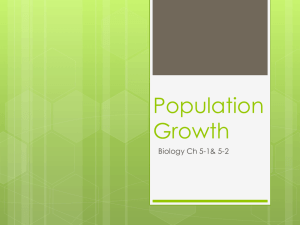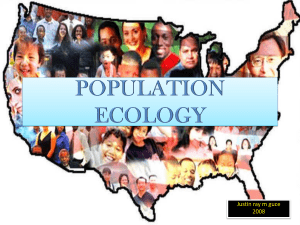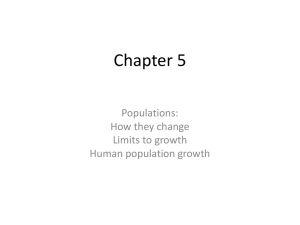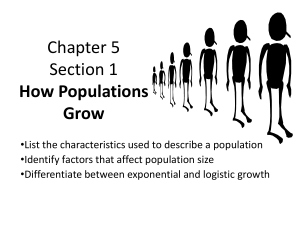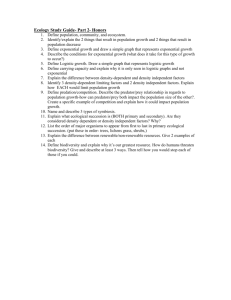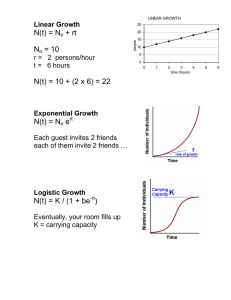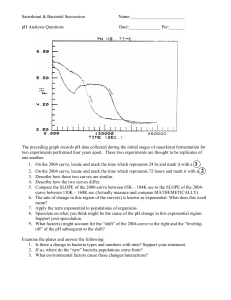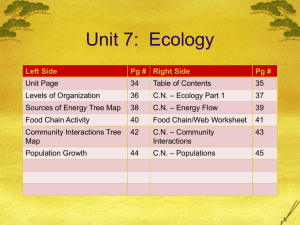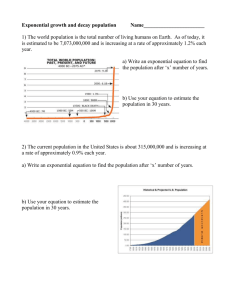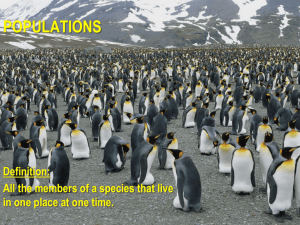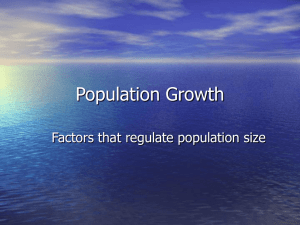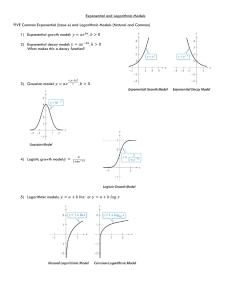Notes 5-1
advertisement
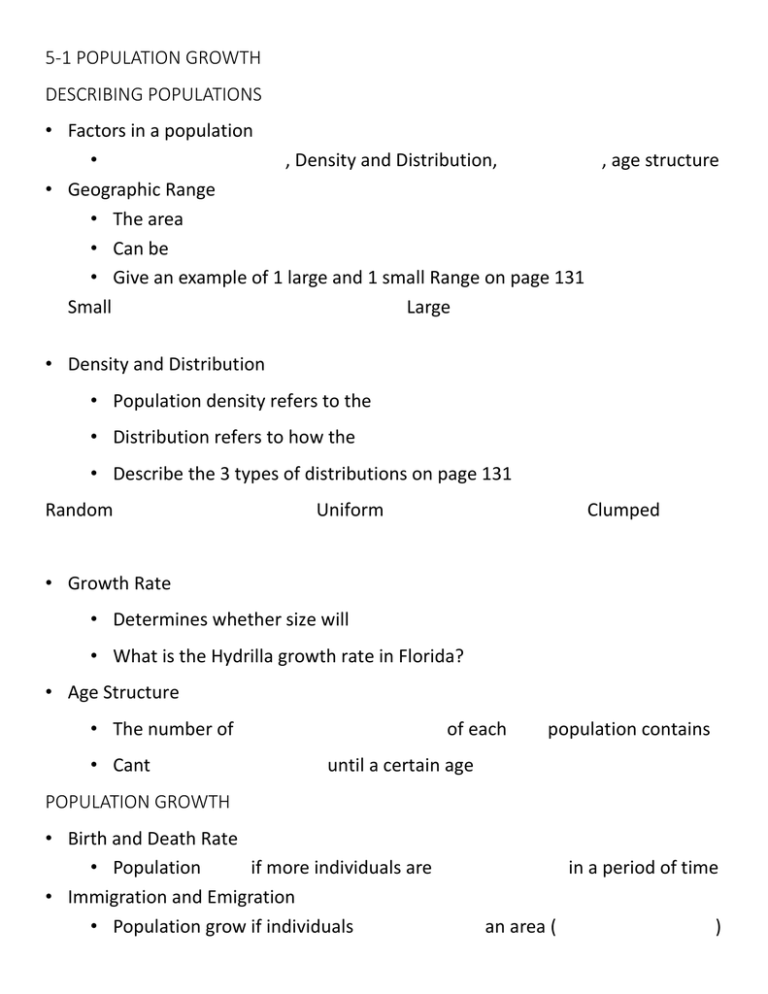
5-1 POPULATION GROWTH DESCRIBING POPULATIONS • Factors in a population • , Density and Distribution, , age structure • Geographic Range • The area • Can be • Give an example of 1 large and 1 small Range on page 131 Small Large • Density and Distribution • Population density refers to the • Distribution refers to how the • Describe the 3 types of distributions on page 131 Random Uniform Clumped • Growth Rate • Determines whether size will • What is the Hydrilla growth rate in Florida? • Age Structure • The number of • Cant of each population contains until a certain age POPULATION GROWTH • Birth and Death Rate • Population if more individuals are • Immigration and Emigration • Population grow if individuals in a period of time an area ( ) • Population drops if individuals an area ( ) • What would cause individuals to move into or out of an area? (Page 132) EXPONENTIAL GROWTH • The larger a population gets the • Under conditions • How is the time of exponential growth different in species that reproduce fast compared to species that reproduce slow? • What happens to the growth of organisms in a new environment? Page 133 LOGISTIC GROWTH • Eventually exponential growth • 3 phases of growth • Phase 1 – rapid growth: • Phase 2 – Slows down: • Phase 3 – Growth Stops: Carrying capacity stabilizes LOGISTIC GROWTH CURVE • Occurs when a population’s growth slows then stops after a period of exponential growth • “ ” shape curve • Give three reasons why population growth will slow 1) 2) 3) CARRYING CAPACITY • When rates , population • Still may rise and fall but remain • The broken line of the graph on page 134 represents the maximum number of species that area can sustain
